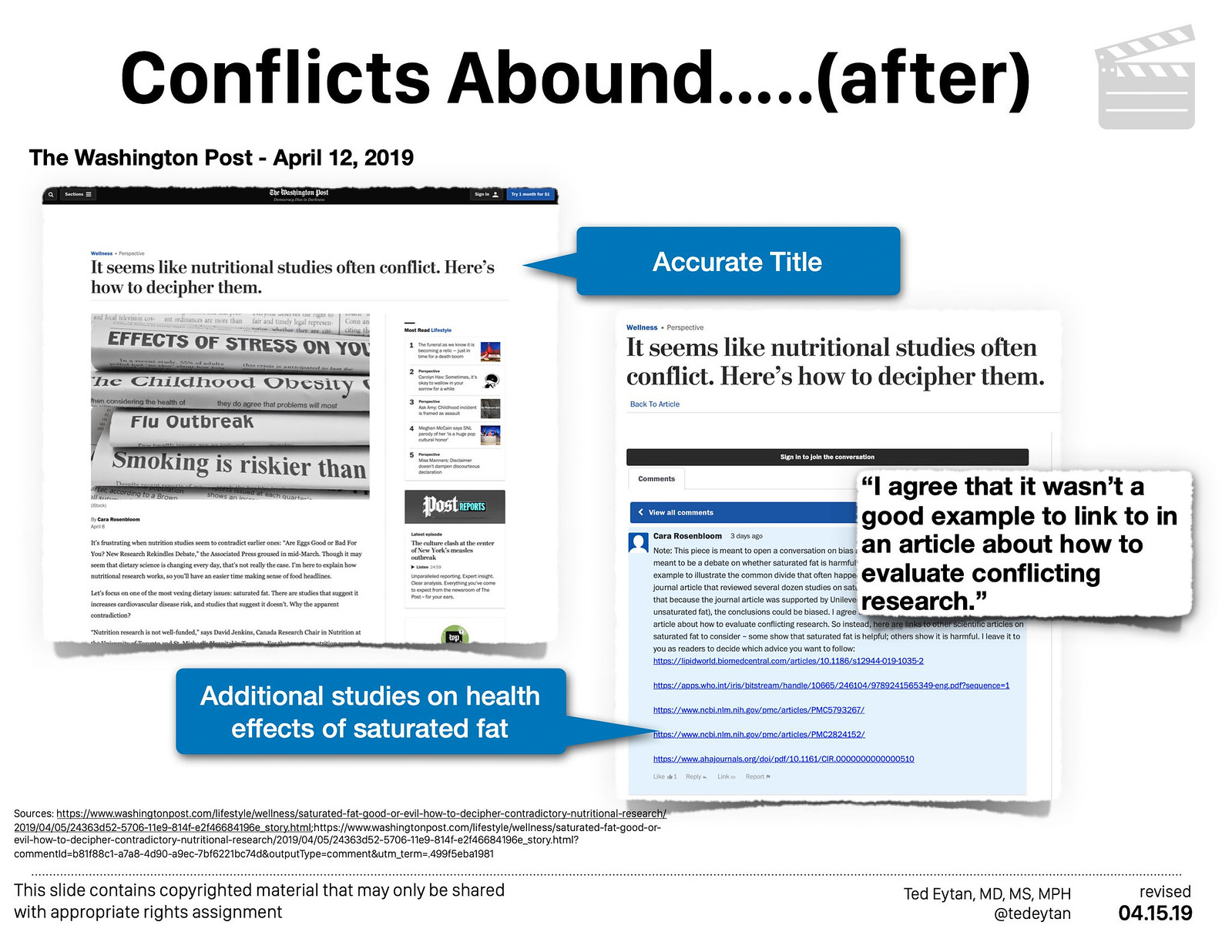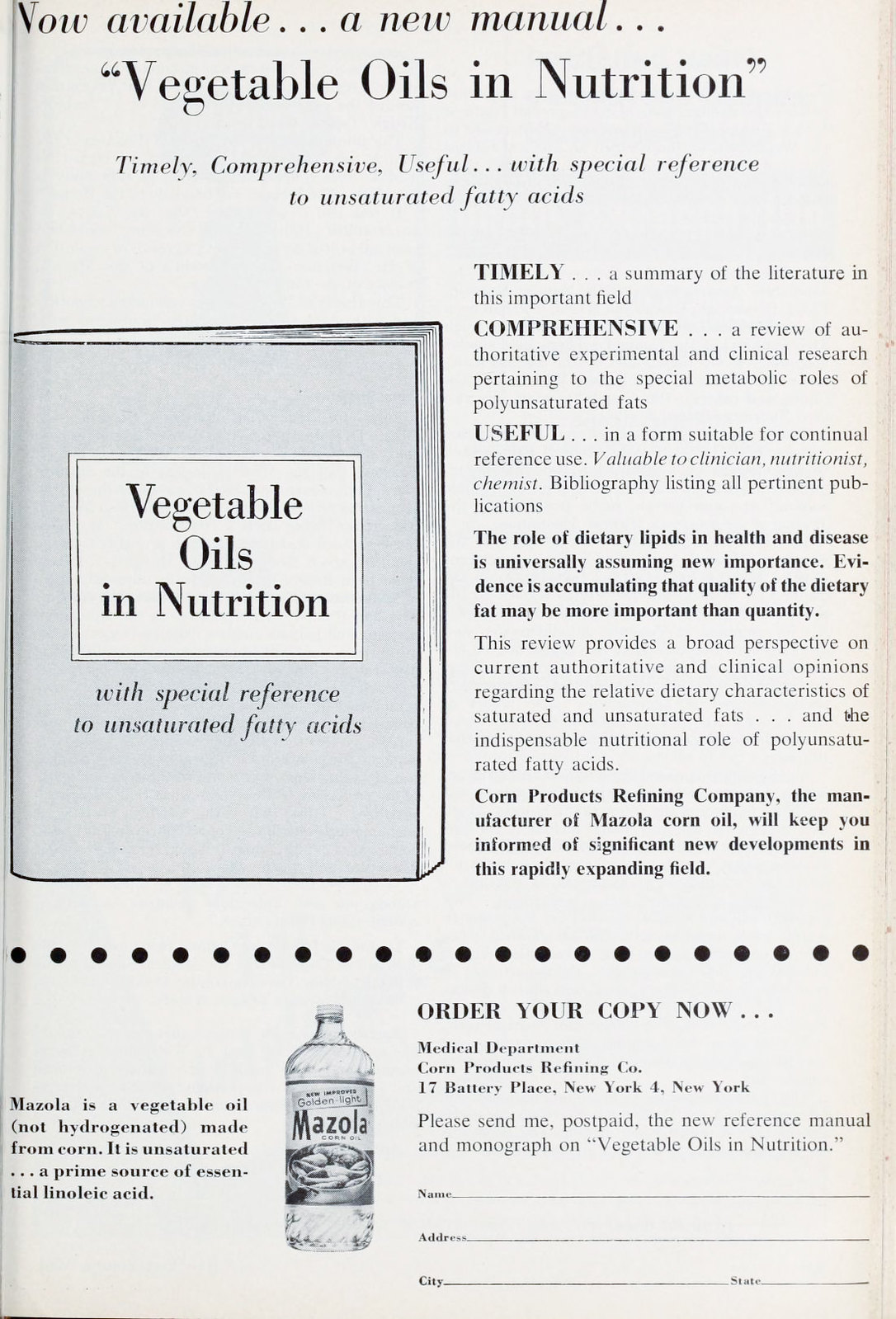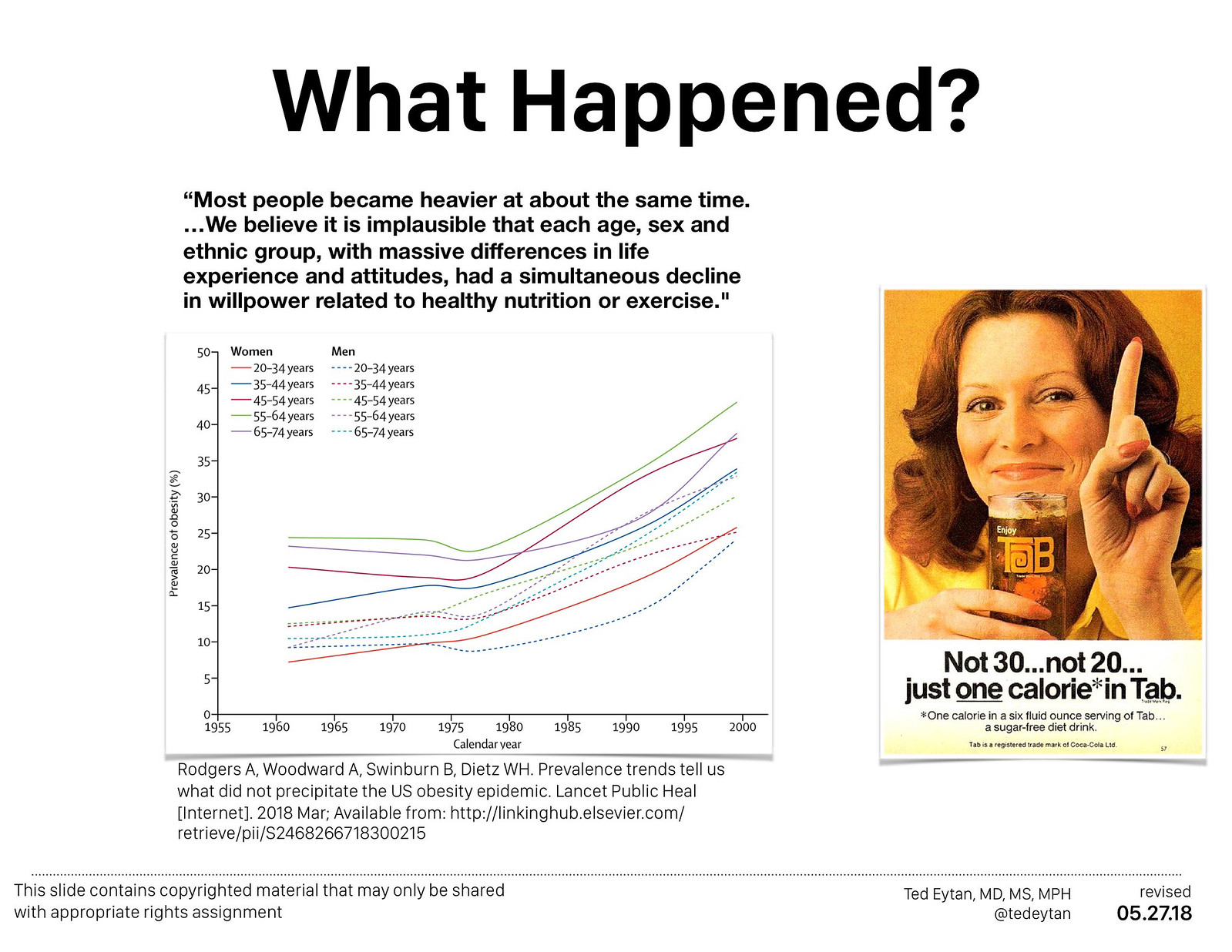
There’s a saying/complaint that doctors do not get enough nutrition education in medical school. Actually this is wrong. We do get a lot of nutrition education, we just get it from the wrong places.

Witness this advertisement from the New York State Medical Journal of Medicine in 1957 (!). Does anyone believe our profession wasn’t being educated via the pages of our medical journals?
If there is doubt, I clipped a whole bunch of other advertisements like this to demonstrate the point.
We know that
- Much of the nutritional science published is poorly done, and
- There is an unending stream of conflict of interest that’s often hard to decipher
- Many physicians (and humans) never click through to the actual article, read beyond the abstract, or review the funding sources of a piece of research
Because I’m so interested in this topic (and the health of our communities), I read all the way through. And recently, this was found in a perspective piece in the Washington Post:
Fortunately, and thankfully, the managing editor made herself available via email and responded to concerns expressed in the way this piece was presented and the literature it linked to, and adjustments were made (see top image).

This Washington Post Perspective, published 4/8/2019, states “…the the overwhelming majority of the evidence still supports the connection (between saturated fat and heart disease),” which links to a single article written by authors funded by Unilever NV, major producer of industrial bean and seed oils and promoter of plant-based diets.
Research is exceptionally hard to decipher when the data chosen is funded by industry.
A few (of many) better choices:
The PURE study – not funded by the food (or any) industry – www.phri.ca/pure/
BMJ/SwissRe #Food4Thought18 – not funded by the food industry – www.swissre.com/institute/conferences/food_for_thought_bm…
Sources:
www.washingtonpost.com/lifestyle/wellness/saturated-fat-g…
www.ncbi.nlm.nih.gov/pmc/articles/PMC6067651/
www.theiem.org/about/iem-history-and-mission
www.iuns.org/wp-content/uploads/pdf/features/Memorandum_o…
www.unilever.com/sustainable-living/improving-health-and-…
I’d say this is a win for accuracy, and a story about how journalists are not accessories to health knowledge, they are critical to it.
WashPost story on sat fats cites only 1 study, funded by Unilever, a major veggie-oil maker (competes w/ sat fats). This unbalanced, corporate-influenced story by journo who's not even on staff? Seems like a paid advertorial, editor @ElizabethGChang? https://t.co/LcKeEe4u7j
— Nina Teicholz, PhD (@bigfatsurprise) April 11, 2019
Saturated Fat, it’s not that much of a controversy
As far as the science around saturated fat goes, the author’s original statement would be true if it was made in the last century (and actually it wasn’t true then either, now that the data has been re-analyzed). It is definitely not true today. There are many recent studies and metanalyses that refute the claim that saturated fat is connected to heart disease. Here’s a great presentation from @AndrewMente about the findings from the PURE study and the relevant studies that preceded it. I have many more I can share for people who are interested.
Note also at the beginning that he has no conflicts to disclose. Conflict free is the way to be.
This isn’t a diet war, it’s a health piece, and we don’t have a desire to be right, we have a desire to know, two different things, because this is what happened when people lost the desire to know:

My Disclosures – All here
I’ve put up a page with all of my disclosures (I have none), and the reminder that my work in this space is on behalf of myself and not any organization.
Enjoy and thank you social media for enabling the conversation.